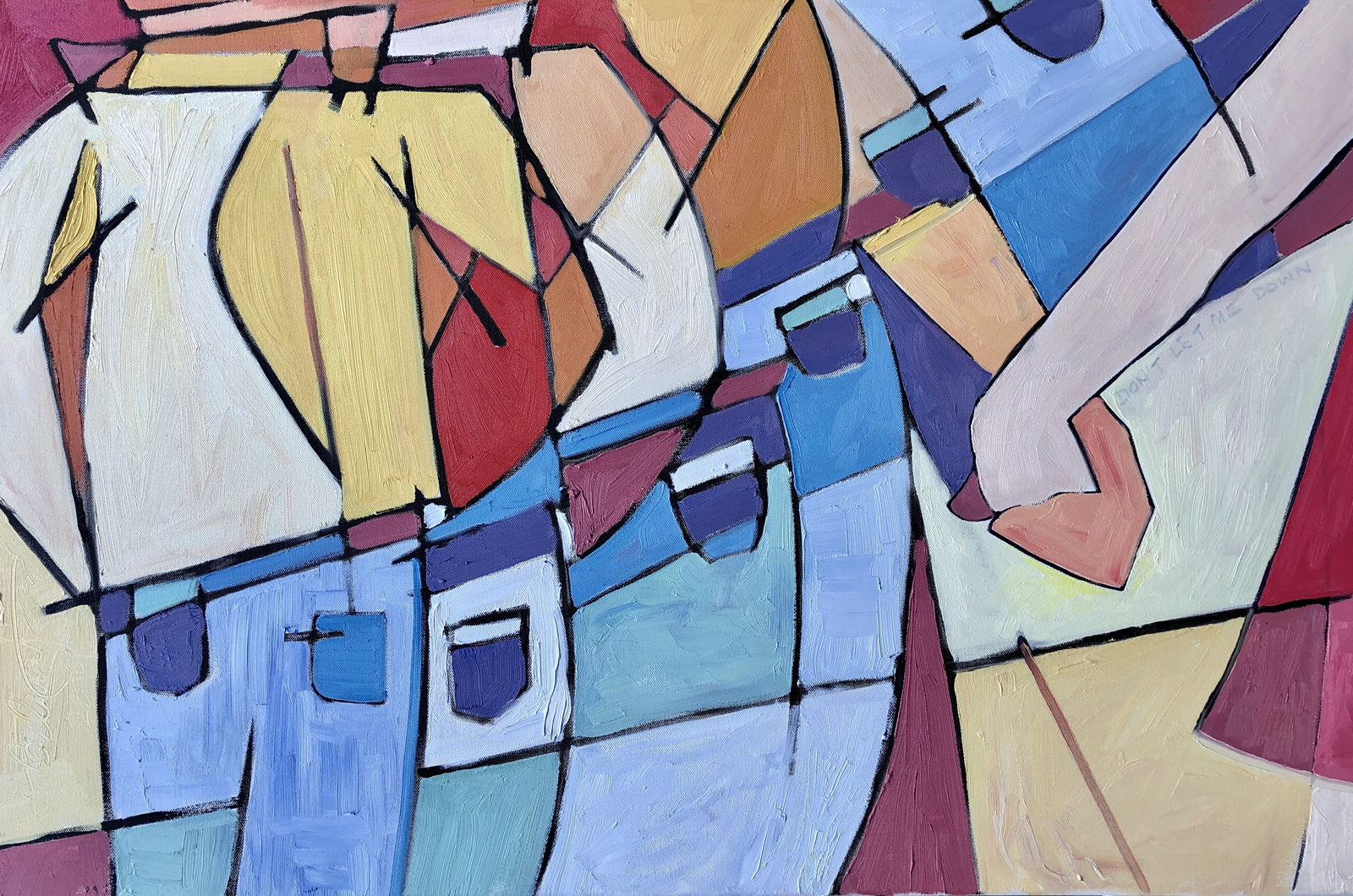The Mermaid and the Prince Lived Happily Ever After in Toledo
Or so the prince thought.
The mermaid looked out from a tank, her new legs bound together in spandex, beads, and sequins. Men sat at a bar that ran the length of the tank and stared at the mermaid and her coworker, a siren named Lorelei. The mermaid had to move her torso along with her legs to propel herself, unlike when she still had a tail. She thought about the dark and quiet of her former home. She missed the power of the ocean, the way it could change form, going from liquid to gas and back to liquid. Able to move weather and influence the earth’s rotation.
At the top of every hour Lorelei pulled herself out of the tank. She sat on a fiberglass boulder suspended from the ceiling, wavy hair cascading over her body, and sang. The men smiled and swayed, tipping off their barstools.
“How did you end up here?” asked Lorelei one night as they stepped into their costumes.
The mermaid shrugged. Her voice was no longer hers.
“You’re so quiet,” Lorelei said.
The mermaid longed to talk. Longed to get out and sing with Lorelei. She regretted the deal with the sea witch, giving up her voice so she could marry the handsome adjunct. After their wedding the prince took a job at a university near Toledo, making the deal even worse.
“You’ll have no trouble finding work too,” her sisters told the mermaid. “You have such a lovely singing voice. And you learn new languages so quickly.”
Under the sea she knew four languages: squid, nautilus, anglerfish and whalesong. When she tried to sing in Toledo her words were distorted by air. The man she auditioned for handed her the bejeweled tail. She brought it home and threw it on the prince’s desk. He looked up from his laptop.
“It’s a first step,” he said.
The mermaid stepped away.
“Go see the water. It might be comforting,” the prince said. He wanted her to be happy. He showed her a map with the bus route to a park on the Maumee River. She packed her headphones and seaweed snacks. She walked along the river listening to whalesong. The water smelled wrong. It licked the shore instead of biting and growling, the way the ocean did. She thought it whispered: “go away.” Humans walking under the overcast sky looked as lonely as she felt.

After work the mermaid returned to the house the prince was remodeling for her. In the bathroom he pulled out the porcelain tub and vinyl tiles, replacing it with a floor of clamshells and seaglass and a bigger, deeper tub. She climbed in and added a bath bomb to the water, creating a foamy explosion of algae, sand, fish broth, and squid ink. The dark silent brine was a balm.
After her soak she joined the prince in bed. He’d built a platform for a mattress filled with water they drove home from the Pacific Ocean. Not from the Maumee River, as he’d once suggested. The thought of fresh water made her salty. To help with sleep, the mermaid made a plug-in room freshener with krill oil, volcanic salt, and essence of pineapple and coconut.
She woke to the smell of coffee and the sound of her in-laws talking. They often visited from Cleveland. She liked the prince’s family, though she didn’t always understand them. At Christmas, as a joke, they gave her a trophy with the word Quietest engraved on the base. She kept it on her dresser, hung necklaces on it.
Her mother-in-law brought photos of the prince’s niece and nephew. Both played soccer.
“Ashleigh’s applying to college now,” said her mother-in-law. “Such an exciting age.”
The mermaid looked at the photo of the niece, kneeling in front of her soccer team, a triumphant grin on her face. She thought of herself at that age. About the poster of Port Royal, an underwater city near Jamaica, on her bedroom wall, and her dreams of working for an interocean publisher while she sang in the evenings. Before her wedding she’d nearly completed translating Wuthering Heights into whalesong.
At work that night she swam above the plastic kelp and pink pebbles lining the bottom of the tank. Submerged blue lanterns gave the greenery and pebbles the sheen of a fresh bruise.
She thought about Ashleigh. And about her youthful dreams that, like water, slipped through her fingers. These men watching her and Lorelei: Did they have partners at home also behind glass, maybe floor-to-ceiling windows in one of those new high-rises downtown, or a window in a cottage in the woods, wondering about former dreams?
One of the men approached the tank and licked it. The mermaid and Lorelei retreated to the back of the tank until it was time for Lorelei to surface and climb on her rock. The mermaid followed. She spread her sequined tail to the side. The two of them sang. As the mermaid’s guttural croak floated over the room, the men’s faces crumpled as if they’d tasted something bitter.
Their boss waved his arms, trying to get the mermaid to stop. The bartender slammed his shaker on the bar. One of the men threw a bottle at the tank. The mermaid’s laughter came out like a roar. She dove back in the tank, finishing with a thrust of her tail, throwing water over the crowd. She opened her mouth and continued to sing, notes only she could hear.
Lori Barrett: A lover of oceans living in the Midwest, I enjoy the ocean-like feel of Lake Michigan. It doesn’t make me salty. I’m an assistant fiction editor at Pithead Chapel and a prison writing mentor. My work has appeared in Salon, Citron Review, Laurel Review, Peatsmoke Journal, and Identity Theory. I credit Samantha Hunt’s novel The Seas for making me fall in love with mermaids as an adult.
